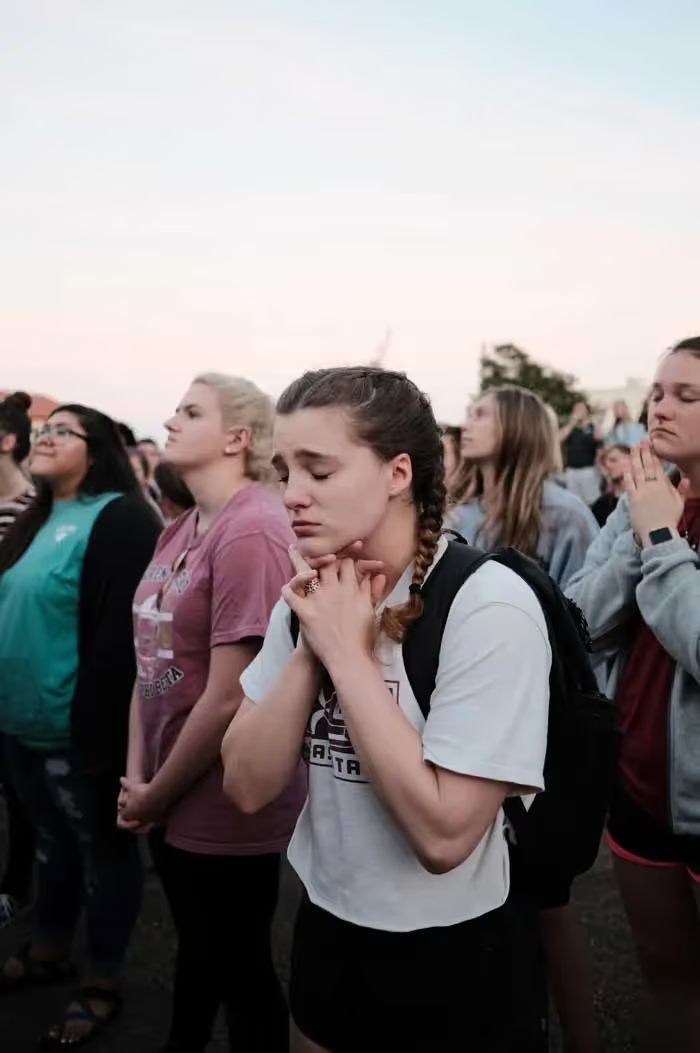Death anxiety is a normal part of life. It is the fear of death or dying. This may be caused by a loved one's death, thinking about our mortality, or...
.avif)
Death anxiety is a normal part of life. It is the fear of death or dying.
This may be caused by a loved one's death, thinking about our mortality, or exposure to violence.
Death anxiety can lead to avoidance behaviors, such as not wanting to talk about death or avoiding places where death may occur.
It can also cause physical symptoms, such as increased heart rate and sweating.
While death anxiety is normal, it can become debilitating if it interferes with our daily life.
Some things can help reduce death anxiety.
Death anxiety is a natural and normal reaction to the awareness of our own mortality.
It is a feeling of dread, or even terror, in response to thoughts about death or dying.
For some people, death anxiety is mild and manageable. For others, it can be so severe that it interferes with their ability to live a normal life.
There are several ways to deal with death anxiety.
Some people find comfort in religion or spirituality.
Others find comfort in spending time with family and friends, or in activities that bring them joy.
Some people find counseling helpful. There are also medication options that can help to ease the symptoms of death anxiety.
No matter what method you choose, dealing with death anxiety is possible.

For many people, the very thought of death is anxiety-inducing.
Whether it's the fear of our mortality or the grief of losing a loved one, death can be a difficult topic to grapple with.
However, experts agree that openly talking about death can help us to cope with our fears and anxiety.
Furthermore, research has shown that talking about death can help us to appreciate life more and make us more likely to take positive actions such as eating healthier and exercising regularly.
So next time you're feeling anxious about death, try having a conversation about it with a friend or family member.
You may be surprised at how helpful it can be.
One of the best ways to combat the fear of death is by spending time with the people you love.
Not only will you feel supported and connected, but you'll also be reminded of what's truly important in life.
So make an effort to spend time with your loved ones regularly as a way to help deal with death anxiety.
Whether it's going for walks together, sharing meals, or simply spending time in each other's company, quality time with the people you care about can go a long way in helping you to cope with death anxiety.
When we're feeling anxious or stressed, it can be difficult to find enjoyment in the things we used to love.
However, it's important to make an effort to do the things that make us happy.
Identify the activities that bring you joy and make a point to do them regularly.
Whether it's reading, spending time in nature, or listening to music, taking the time to do things you enjoy can help you to feel more balanced and at ease.

Avoidance behaviors are any actions that we take to try to avoid thinking about death or dying.
Some common avoidance behaviors can include:
While avoidance behaviors may provide temporary relief from death anxiety, they ultimately reinforce our fears and can lead to more problems down the road.
If you are struggling with death anxiety, it is important to seek help from a professional who can assist you in learning healthy coping mechanisms.
Death anxiety is a normal and natural reaction to the awareness of our own mortality. However, it can become debilitating if it interferes with our daily life.
If you find that your death anxiety is severe and impacting your quality of life, it may be time to seek professional help.
A therapist can assist you in exploring the root of your fears and provide you with tools to deal with your anxiety.
In some cases, medication may also be recommended to help ease the symptoms of death anxiety.
No matter what treatment you choose, know that it is possible to live a full and meaningful life despite your fears.
This content is intended for informational purposes only. Please do not use it for official medical advice.
If you need help please reach out to a licensed healthcare professional who can help give you the care you need.
Death anxiety is normal. It's something that we all experience at some point in our lives.
However, for some people, death anxiety can be so severe that it interferes with their daily life.
If you find yourself in this situation, know that there is help available.
With the right treatment, you can learn to cope with your fears and live a full and meaningful life.
If you are struggling with death anxiety, please seek professional help.
A therapist can assist you in exploring the root of your fears and provide you with tools to deal with your anxiety.
The duration of anxiety counseling varies for each individual, depending on the severity of their anxiety and their progress in therapy. Our therapists will regularly assess your progress and adjust your treatment plan as needed.
Yes, Medicaid provides insurance coverage for therapy services specifically designed to help individuals struggling with anxiety, depression, and other mental health conditions.
Addressing anxiety is crucial because it can significantly impact your quality of life and overall well-being. Left untreated, anxiety can lead to more severe mental health issues, relationship problems, and difficulty functioning in daily life.
It's important that you feel comfortable discussing personal matters with your therapist in order to open up and get more out of therapy sessions; therefore finding someone who meets certain criteria like experience level, expertise areas, and personality is key when selecting a therapist who can give meaningful feedback about how best handle issues related to anxiety or other mental health concerns.
Other activities which have been found helpful in reducing both immediate feelings of anxiousness and long-term anxieties associated with chronic disorders include yoga, journaling, nature walks, art therapy, volunteering, and other low-stress activities. Additionally, developing a healthy lifestyle incorporating adequate sleep, physical activity, and nutritious meals can help reduce overall stress levels.
Ignoring anxiety can exacerbate symptoms and make it more challenging to manage over time. This can result in a negative impact on your personal, professional, and social life, leading to feelings of isolation and even depression.